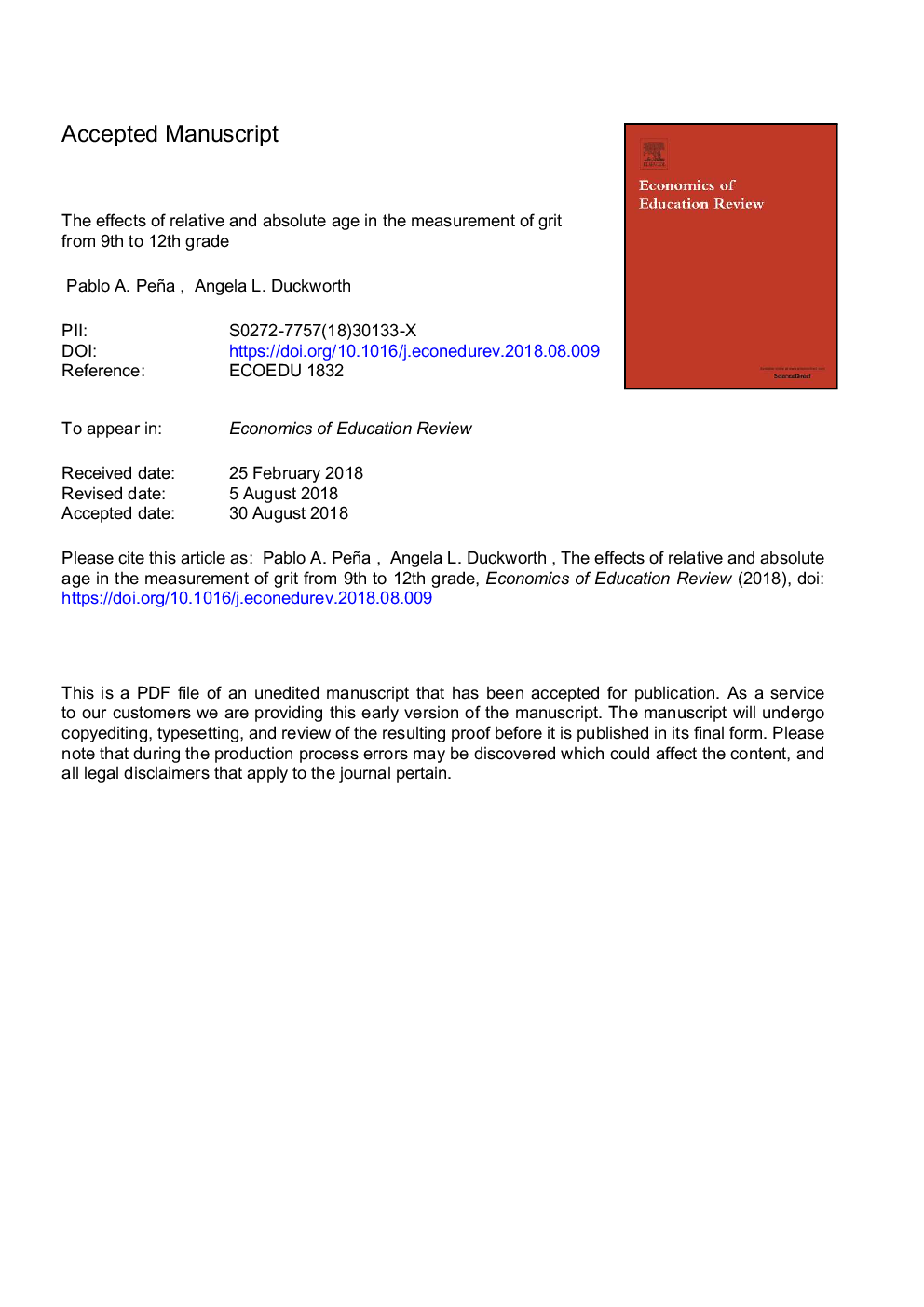| Article ID | Journal | Published Year | Pages | File Type |
|---|---|---|---|---|
| 9951968 | Economics of Education Review | 2018 | 29 Pages |
Abstract
The measurement of grit and other character skills in schools, most often using self-report questionnaires, has grown in recent years. Very little is known about whether self-report questionnaires are subject to age effects. Using a longitudinal sample of 14,762 students in Mexico surveyed in 9th and 12th grades (three years apart), we estimate the effects of relative age (i.e., age with respect to classmates) and absolute age (i.e., age at measurement). Relative age has no significant effect on the Grit perseverance of effort subscale, and a positive effect on the Grit consistency of interest subscale of 0.21 standard deviations per year (Ï). In contrast, absolute age has a positive effect of 0.09Ï on perseverance of effort and a negative effect of â0.13Ï on consistency of interest. Thus, measured perseverance of effort increases with absolute age but not with relative age, whereas measured consistency of interest increases with relative age and decreases to a lesser extent with absolute age. We discuss possible explanations for and implications of these age effects.
Related Topics
Social Sciences and Humanities
Economics, Econometrics and Finance
Economics and Econometrics
Authors
Pablo A. Peña, Angela L. Duckworth,
